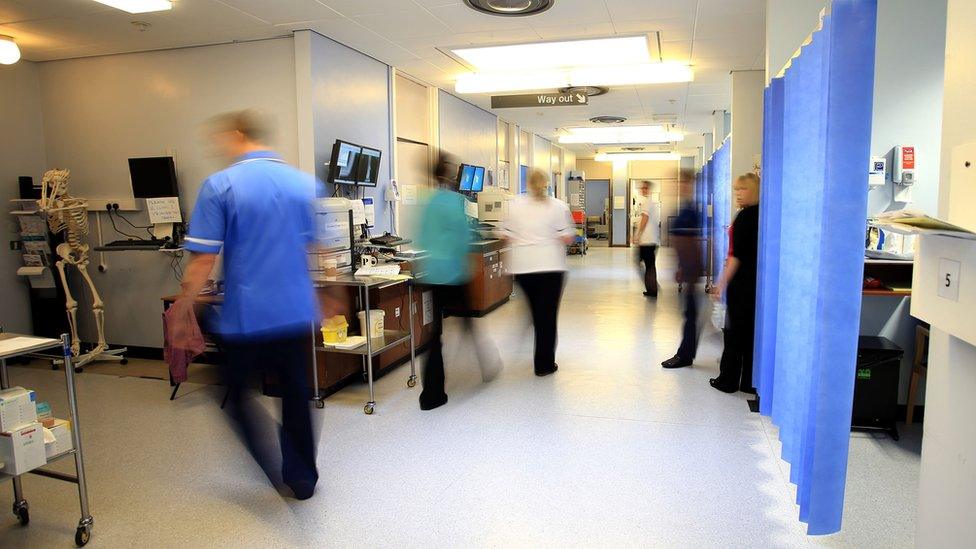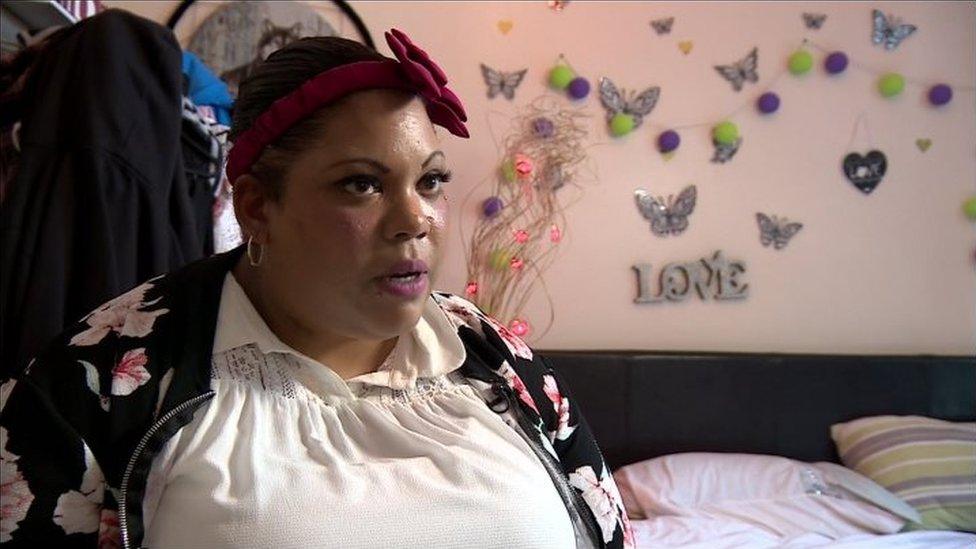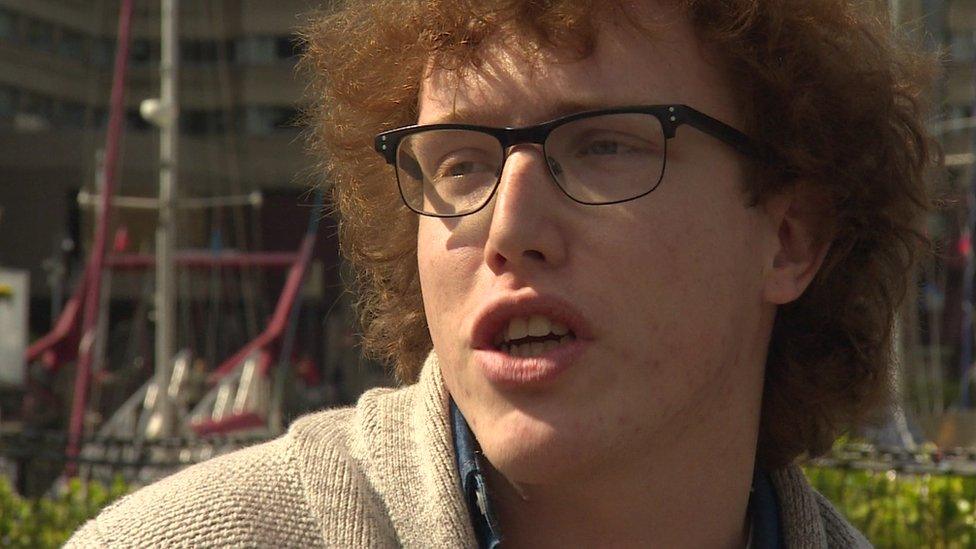Mental health staff on long-term stress leave up 22%
- Published
- comments

Some trusts saw the number of staff taking long-term leave double in five years
The number of NHS mental health staff who have had to take sick leave because of their own mental health issues has risen by 22% in the past five years.
Those taking long-term leave of a month or more rose from 7,580 in 2012-13 to 9,285 in 2016-17, BBC freedom of information requests found.
The union Unite said cuts to staff and services were putting extra pressure on front-line mental health workers.
The Department of Health said it was transforming mental health care.
Out of 81 mental health authorities in England, Scotland, Wales and Northern Ireland, 58 provided the BBC with comparable information.
Looking after ourselves
One mental health doctor who had to take mental health leave told 5 live anonymously: "I don't think I realised it was happening until quite a long way down the road."
She explained that she was getting irritable with her partner, her sleep was disturbed and she couldn't switch off from work.
"In the end, I went to my GP who offered me a sick note. I was quite taken aback that it was quite so obvious to my GP that I needed to be off work." she said.
Former mental health nurse on why she had to leave the NHS
"As mental health practitioners, we are pretty rubbish at putting our own mental health first. You need to put your own oxygen mask on first before putting it on to someone else."
5 live also spoke to a group of community mental health nurses at the Leeds and York Partnership NHS Foundation Trust about how they cope with the pressure of the role.
"I think when you're so passionate about something it's very easy to overlook just how much you are taking on," said Kate Ward, an occupational therapist working as a care co-ordinator in the team.
She said it was important for staff to understand what their thresholds are, recognising the early signs of their resilience getting chipped away.
"We think we are this person that can help everybody, but we have to remember that we have to help ourselves sometimes," Julie Poole, a community mental health nurse, explained.

Community mental health nurses spoke to 5 live about the pressures they face
Dave Munday, mental health professional lead at union Unite, which represents 100,000 health workers across the UK, said: "These figures are of real concern and they only tell part of the story.
"We know that many more mental health professionals will feel unwell but try to 'soldier on' or mask the real reason they're taking leave.
"Our members tell us workplace stress is increasing and that cuts to staff and services mean they're working longer hours with fewer resources.
"Staff themselves are feeling the impact of austerity and there's a lack of trust in the often repeated but not fulfilled promises of the current government."
Not good enough
A spokesman for the Royal College of Nursing said: "Mental health staff face unique challenges. The pressure to make the right decision and provide care for extremely vulnerable people against a backdrop of staff shortages, can take its toll on their health and wellbeing.
"More than 40,000 mental health staff are assaulted every year, and too often violence is seen as 'part of the job' by employers, and the authorities.
"This isn't good enough. We want to see action on work-related stress, including violence at work which, as well as physical injuries, adds to burnout stress, and depression."
The Department of Health said: "We are transforming mental health care for everyone in this country, including NHS employees, with record amounts of investment.
"There is more to do - that is why we are undertaking one of the largest expansions of mental health services in Europe, so that all staff have the time to look after themselves as well as others."
Hear more from State of Mind, 5 live's mental health season
- Published3 August 2017

- Published18 April 2017
